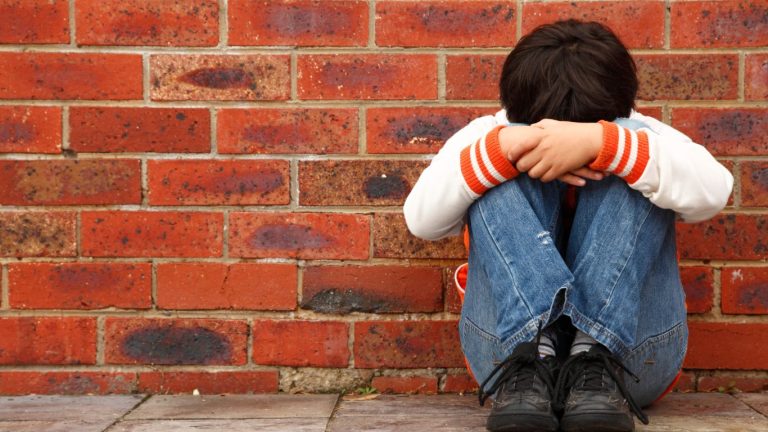Bullying remains a significant issue in New Zealand, affecting the lives of many children and their families. With the rise of digital technology, the scope and impact of bullying have evolved, prompting legal considerations for holding perpetrators accountable. This article explores whether parents of bullies can be sued in New Zealand, delving into the legal framework, grounds for action, and the potential consequences of such lawsuits.
Key Takeaways
- New Zealand law, including the Harmful Digital Communications Act, provides a legal framework for addressing bullying, which may extend to holding parents accountable in certain circumstances.
- Legal action against bullies’ parents can be based on negligence or vicarious liability, but requires clear evidence of a breach of duty of care or direct responsibility for the child’s actions.
- The process of taking legal action involves several steps, including filing a claim and possibly engaging in mediation before proceeding to court.
- Suing the parents of a bully can result in compensation for the victim, but it also has implications for relationships within the community and the long-term wellbeing of both the bully and the victim.
- Preventative measures, such as educational programmes and support services, are crucial in creating a safer environment and addressing bullying proactively in New Zealand.
Understanding the Legal Framework for Bullying in New Zealand
The Harmful Digital Communications Act (HDCA)
As a mum, I know how worrying it can be when our kids are glued to their screens – it’s a whole world in there, and not always a kind one. That’s why it’s reassuring to know that New Zealand has the Harmful Digital Communications Act in place. This piece of federal law is like a big, protective umbrella for our children when they’re online. It’s designed to prevent harm caused by digital communications, and that includes cyberbullying, which could be a modern parent’s nightmare.
The Act makes it clear that sending messages or posting content intended to cause harm is a no-no. It’s about keeping our kids safe from harassment and the darker sides of the internet. And if someone does cross the line, there are real consequences. With an increase in cyber abuse, it’s a relief to know that there are laws to help tackle these issues.
The key here is that the Act isn’t just about punishment – it’s also about education and prevention. It’s a reminder to our kids to be kind online, just as they would be in the playground.
So, if you’re worried about your child facing cyberbullying, it’s worth having a chat with them about this Act and the issues that it addresses. Explain that it’s there to protect them and that they can always come to you or another trusted adult if they’re feeling threatened or upset by something online.
When Can Parents Be Held Liable?
Navigating the choppy waters of bullying might feel like we’re in a dinghy without oars! But when it comes to the nitty-gritty of the law, there are moments when parents of a bully might need to take responsibility. If a parent knowingly ignores or even encourages their child’s harmful behaviour, they could be on the hook legally. It’s a bit like when you’re at the park, and you see a kid throwing sand. If the parent just sits there, scrolling through their phone, we all know they’re not doing their bit, don’t we?
Now, I’m not saying every parent of a bully will end up in court, but it’s important to understand that there are lines that shouldn’t be crossed. And if they are, the law has a way of stepping in.
Here’s a little checklist to keep in mind:
- The behaviour must be serious and ongoing.
- The parent must have knowledge of the behaviour.
- There must be a clear lack of action or encouragement from the parent.
It’s all about making sure our kids are growing up in a kind and safe environment – something we all want, right?
Exploring the Grounds for Legal Action Against Bullies’ Parents
Negligence and Duty of Care
Sometimes, despite our best efforts, our little ones come home with more than just tales from the playground; they come home with injuries. And it’s not just the physical scrapes that worry us, it’s the emotional wounds from bullying that can cut the deepest. Now, if your child has been hurt by a bully, you might be wondering about the concept of negligence and whether the bully’s parents have a legal duty to stop their child’s harmful behaviour.
What is Negligence?
Negligence, in legal terms, is when someone fails to take reasonable care to avoid causing injury or loss to another person. In the context of bullying, if a parent knows their child is a bully and does nothing to prevent it, they could be seen as negligent. This is because parents have a responsibility to supervise and control their children’s actions to prevent harm to others.
Understanding Negligence in Bullying Cases
Here’s a simple way to understand how negligence might apply to a bullying case:
- Known History: A parent knows their child has a history of bullying.
- No Action Taken: The parent fails to take reasonable steps to correct this behaviour.
- Injury Results: Another child is injured as a result.
In such cases, the injured child’s parents might have grounds to claim that the bully’s parents were negligent.
The Importance of Responsibility
It’s all about taking responsibility for our actions, or in this case, the actions of our children. We can’t turn a blind eye and hope for the best; we need to be proactive in preventing harm.
Legal Considerations
Of course, every situation is unique, and proving negligence can be complex. But if your child’s injuries are serious and you believe the bully’s parents had a chance to prevent the behaviour, it might be worth exploring your legal options.
Vicarious Liability: A Parent’s Responsibility
Vicarious liability is a bit like when you have to foot the bill for your teen’s mobile phone they broke… again. In New Zealand, the law isn’t about pointing fingers without reason. It’s about making sure everyone’s doing their bit to keep our kids safe and sound. So, if a parent knows their child is a bully and doesn’t do anything about it, they could be in hot water. It’s like if you’re at the park and you see your little one about to throw rocks at another child. You’d step in, right? The law expects the same kind of proactive approach at home.
- Know your child’s behaviour
- Keep communication open with teachers
- Take action if you’re aware of bullying
It’s about taking responsibility and not turning a blind eye. We all want what’s best for our kids, and that includes teaching them to be kind and respectful to others.
Assessing the Evidence: What You Need to Prove
When it comes to standing up for our kids against bullying, the evidence is key. Think of it like putting together a puzzle where each piece is crucial to seeing the full picture. You’ll need clear proof that the bullying occurred, and this can be a mix of witness statements, records of online interactions if it’s cyberbullying, or medical reports if there’s been a physical assault.
Let’s say your child has been the victim of physical bullying, with actual assaults taking place. It’s heartbreaking, I know. You’d need to gather any medical records of injuries and maybe even a diary of incidents to show a pattern of intimidation. It’s not just about one-off events; it’s the ongoing nature of bullying that really takes its toll.
Here are a few of things to consider:
- Witness statements from other children or parents
- Medical reports detailing any injuries
- Screenshots or records of digital harassment
- A written record of all bullying incidents
Remember, it’s not about pointing fingers without cause. It’s about protecting our children and making sure those responsible are held to account.
I’ve read stories, like the one where both parents went to a child’s house when her parents weren’t home, which just adds to the complexity. And if the bullying is school-based, it’s a bit more straightforward to address through the school’s system. But if it’s happening in the community, things can get a bit more complex. Bullies generally bully others to exert power, and it’s our job to stand up to that.
The Process of Taking Legal Action
Filing a Claim: Steps to Consider
When it comes to taking action against the parents of a bully, the journey can seem a bit daunting, can’t it? So a chat with a legal expert it most likely the best way to start. Many lawyers offer a free consultation, so you can understand your legal options without any pressure.
Here’s a short list to help you get started:
- Gather all the evidence of the bullying incidents.
- Keep a detailed record of any complaints you’ve made to the school or other authorities.
- Seek legal advice to explore your options.
- If advised, pursue a formal complaint against the bully’s parents.
- Consider mediation as a possible step before heading to court.
It’s all about taking one step at a time, and remember, you’re not alone in this. There’s a whole community of parents who’ve faced similar challenges and come out the other side.
And if you do decide to go ahead with a claim, know that the process is there to support you and your child in seeking justice and creating a safer environment for all our kids.
The Role of Mediation in Resolving Bullying Disputes
Mediation can be a real lifesaver when it comes to sorting out the nasties of bullying, whether it’s the verbal jabs at the schoolyard, the social bullying that can turn a group of friends into a lonely island, or the cyberbullying that some of us mums dread.
Mediation is all about finding a middle ground, and it’s a chance for both sides to come together and work things out without the stress of a courtroom. It’s not about pointing fingers; it’s about understanding and moving forward. And the best part? It’s usually quicker and less formal than going to court.
In a mediation session, you can expect:
- A neutral mediator to guide the discussion
- A chance for everyone to share their side of the story
- Exploring solutions that work for all parties
- Hopefully, a handshake (or a hug) at the end of it all
In my experience, kids often just need a chance to talk things out. It’s amazing what a bit of listening and a few kind words can do to mend fences.
Mediation is voluntary, so both sides need to be on board. It’s like agreeing to play the same game by the same rules. And if you’re worried about how to go about it, there are plenty of services and experts who can help guide you through the process. After all, we’re all just trying to make the world a bit kinder for our little ones, aren’t we?
What to Expect in Court
Stepping into a courtroom can be as nerve-wracking as watching your little one take their first solo bike ride. But just like with that bike ride, knowing what to expect can make all the difference. When you’re considering legal options against the parents of a bully, you’ll want to have your ducks in a row. Your attorneys will be your guides, helping you navigate the legal maze and offering the advice you need to present your case effectively.
In court, the atmosphere is formal, but don’t let that put you off. The judge will listen to both sides, and evidence will be key. Think of it like a school debate where the most convincing argument wins. You’ll need to show how the bullying has affected your child, and that the other parents had a role in it. It’s not just about telling your story; it’s about proving it with facts and figures.
In this space, it’s the evidence that speaks volumes, not just the emotional impact.
Here are a few things to keep in mind for the big day:
- Your lawyers will present your case.
- Witnesses may be called to testify.
- Evidence will be examined.
- The judge will make a decision based on the law and the facts presented.
Remember, the goal here is to seek justice for your child, and sometimes that means taking the tough step of going to court. It’s okay to feel a mix of emotions, but with the right legal advice and support, you’ll be able to stand strong for your kiddo.
Potential Outcomes and Consequences of Suing
Compensation and Damages: What’s Possible?
If you decide on going to court, one of the big questions is always about the compensation. For instance, if your child has been physically or emotionally hurt, you might be wondering if you can get some financial help to cover all those unexpected expenses.
Now, I’ve heard through the grapevine about cases where people have received a large compensation payment for bullying – like the Parker v Magnum Hire Ltd case, where Mr. Parker got a hefty sum for the distress he faced. It’s not just about the money, though; it’s about acknowledging the harm done. And if your child has suffered a disability or any serious harm, a personal injury lawyer or personal injury attorney could be your new best friend. They’re the ones who’ll stand by your side, fighting to make sure you get what’s needed to support your little one’s recovery.
Compensation might cover:
- Medical and therapy bills
- Costs for educational support
- Lost wages (if you’ve had to take time off work to care for your child)
- Pain and suffering
It’s not just about the money, though; it’s about acknowledging the harm done.
Remember, every case is unique, and the amount of compensation will vary. But knowing that there’s a possibility for support can be a huge relief. It’s like having a safety net when your child is learning to ride a bike – you hope you won’t need it, but it’s there just in case.
The Impact on Relationships and Community
When considering a lawsuit against the parents of a bully, it’s not just about the legalities. It’s about the fabric of our community. The tension of a legal dispute can ripple through friendships and neighbourhoods.
Bullying can lead to depression, and the last thing we want is for our actions to make things worse. We’re all trying to create a safer environment for our little ones, after all. And while we hope for a positive outcome, the reality is that a lawsuit can sometimes lead to unintended consequences, especially in tight-knit communities where everyone knows each other’s business.
It’s crucial to weigh the potential impact on relationships within the community before proceeding with legal action. We must consider not just the immediate effects, but the long-term wellbeing of our families and the community as a whole.
So, what can we do? Here are some things to ponder:
- Talk to other parents and guardians, share your concerns, and seek their support.
- Consider the emotional toll on your family and the community before taking legal steps.
- Look for alternative dispute resolution methods, like mediation, which might help preserve relationships.
Remember, it’s not just about winning a case; it’s about fostering a community where our kids can thrive without fear or anxiety.
Long-Term Effects on the Bully and the Victim
When we talk about the long-term effects of bullying, it’s like a pebble thrown into a pond; the ripples touch everyone involved. For our little ones who’ve been on the receiving end, the impact can be profound, leading to low self-esteem and, in some cases, lasting psychological damage. It’s heartbreaking to think that the bright spark in their eyes could dim because someone decided to be unkind.
But let’s not forget the bullies themselves. It might be tough to muster up sympathy, but often, these kids are struggling too. Negative behaviour can spiral, and it’s not just the victims who need support.
Bullies themselves can be experiencing their own issues, from physical harm to a troubled path in life.
Here’s a list of things to consider for both the bully and the victim:
- Emotional support and counselling
- Restorative justice programmes
- Monitoring and mentoring for behavioural change
Remember, the goal is to create a future where all our kids can thrive, free from the shadows of their past experiences.
Preventative Measures and Support Systems
Educational Programmes and Anti-Bullying Policies
Schools are really stepping up to tackle issues like discrimination and school bullying head-on. It’s not just about public schools either; private schools are also on board, creating environments where every child can learn without fear.
We’ve got to chat about the resources out there, like BullyingfreeNZ, which is a guide that supports schools to create safe and positive learning environments and is packed with practical advice to prevent bullying behaviour. It’s reassuring to know that there’s a real push to make sure our kids are treated with kindness and respect.
And let’s not forget the role of social media platforms. They can be a double-edged sword, but with the right guidance and policies, they can be places of positive interaction rather than conflict. It’s all about teaching our kids to navigate these spaces safely and respectfully.
As we weave these programmes and policies, we’re not just giving our kids the tools to stand up to bullying – we’re building a foundation for a kinder, more inclusive society.
You may also want to:
- Reach out to school counsellors; they’re there to listen and help.
- Connect with local support groups; sharing experiences can be incredibly healing.
- Look into online forums; sometimes chatting with other parents in the same boat at odd hours is what keeps us sane.
We’re not alone in this. There’s a whole community ready to hold our hands and walk with us through this journey. And remember, it’s okay to ask for help; it’s a sign of strength, not weakness.
Lastly, don’t forget to take care of yourself too. It’s easy to get caught up in trying to fix everything for our kids, but we need to be our best selves to support them fully. So take a deep breath, and know that together, we can weather this storm.
Conclusion
In the end, navigating the complexities of holding someone accountable for bullying, particularly when it involves minors, is no small feat. While the law provides certain avenues for seeking solutions, the decision to pursue legal action against the parents of a bully is fraught with emotional and practical considerations. It’s a path that requires careful thought and often, a heart-to-heart with legal counsel. Remember, it’s not just about seeking justice; it’s about fostering a resolution that ideally leads to healing for all parties involved. Bullying is a societal issue, and while the courts can offer a remedy, the broader conversation about prevention and education continues. As we’ve seen in recent discussions about youth and education in New Zealand, the wellbeing of our tamariki is paramount, and it takes a village to raise a child free from the shadows of bullying.
Frequently Asked Questions
Can I legally sue the parents of a child who is bullying my child in New Zealand?
In New Zealand, suing the parents of a bully can be complex and is dependent on specific circumstances. Liability may arise if parents were negligent or if there is a basis for vicarious liability. Legal advice is essential in such cases.
What is the Harmful Digital Communications Act and how does it relate to bullying?
The Harmful Digital Communications Act aims to deter, prevent, and mitigate harm caused by digital communications, and provides a way to take action against serious instances of online bullying and harassment in New Zealand.
What must I prove to hold a bully’s parents liable for their child’s actions?
To hold a bully’s parents liable, you would typically need to prove that the parents were negligent in supervising their child or that they failed to take reasonable steps to prevent the bullying behaviour.
What role does mediation play in resolving bullying disputes in New Zealand?
Mediation is often used as a first step in resolving bullying disputes. It provides a platform for all parties to discuss the issues and reach a mutually acceptable resolution without going to court.
Are there any preventative measures schools can take to combat bullying?
Yes, schools can implement educational programmes, anti-bullying policies, and create a culture of respect and inclusivity to prevent bullying. Support services for victims and families are also crucial in creating a safer environment for children.







